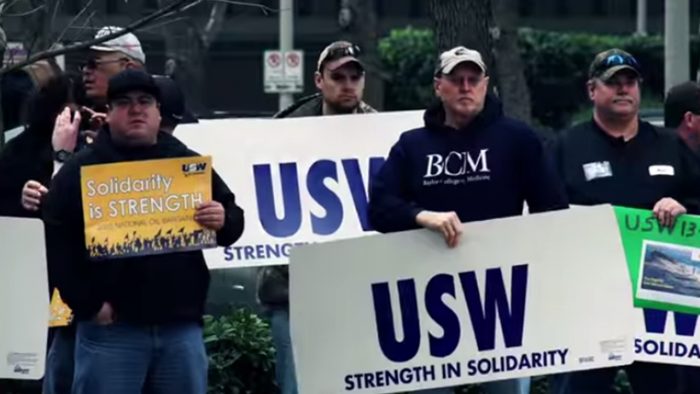
After nearly two months of a partial-nationwide strike, oil industry negotiators and the United Steelworkers have announced a tentative agreement to end the strike.
While the tentative contract comes after Shell–the industry’s lead negotiator–announced that would be using replacement workers to ensure business continuity, according to the Steelworkers’ press release, “accomplishes the major goals as directed by the USW’s oil conference.”
However, after thousands of union members went without pay for nearly two months, it is not clear whether the issue that the Steelworkers had made the primary focus of its strike was really addressed.
Apprently, after capitulating on the high wage increases initially demanded, the Steelworkers’ union maintained throughout the rest of the strike that “safety” was its primary issue. This included the use of non-union maintenance personnel, as well as “fatigue.”
According to the union’s press release, it appears that the union has won a joint management-labor “review” process, but does not specify whether there is a resolution process if there is disagreement on the reviews.
Safety issues were central to the negotiations, and the proposed agreement calls for the immediate review of staffing and workload assessments, with USW safety personnel involved at every facility. Daily maintenance and repair work in the plants was another critical issue that, too, was addressed.
“The new agreement calls for joint review on the local level of future, craft worker staffing- needs,” said USW International Vice President Tom Conway. “Included are hiring plans to be developed in conjunction with recruitment and training programs.”
The information put forth by the industry’s lead negotiator, Shell, while specific on the wage and benefits being offered, is just as vague as to whether or not the “review” process agreed to is anything more than a committee that will meet and discuss issues, without any form of resolving potential disagreements.
Specifically, the agreement set terms for a four-year agreement commencing February 1, 2015 through January 31, 2019.
Wages
- 2.5%, 3%, 3%, 3.5%
- Wage increases will be effective 4/1 for the first year and 2/1 each subsequent year of the contract
Healthcare
- Renewal of the 80/20 premium split arrangement
Maintenance
- Language that provides opportunities for local discussion by the parties on the future supply and development of craft workers
Fatigue Management
- Language to meet semiannually to review site practices related to fatigue
No Retrogression of previous agreements relating to layoff notice, plant closure, rate retention, health and safety, successorship and job security.
Despite the union settling for far less than the six percent annual increases initially demanded, neither Shell, nor the union, are disclosing whether or not one of the union’s other main issues–the use of non-union subcontractors–has been resolved with the deal.
Before it becomes effective, the tentative agreement must still be approved by the other employers, as well as the union locals and members.





